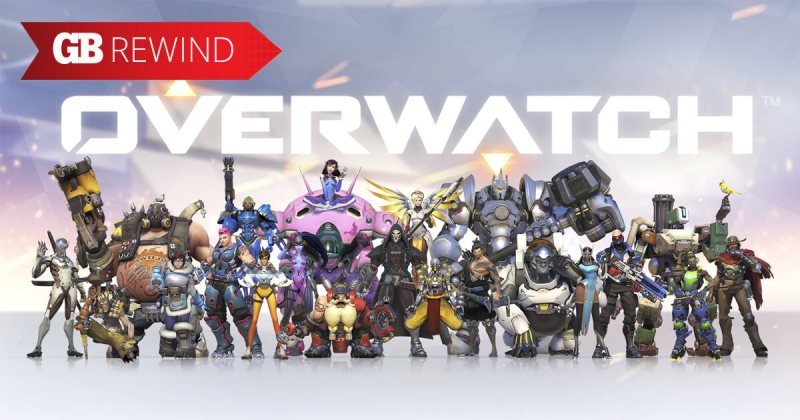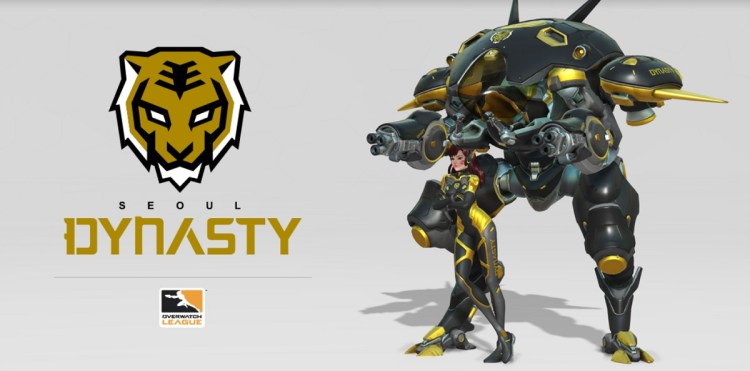testsetset
Kevin Chou is shifting gears from a mobile-gaming mogul to an esports team owner. The former CEO of Kabam sold his company — which made titles like The Hobbit: Kingdoms of Middle-earth and Marvel Contest of Champions — for nearly a billion dollars. And he took some of that payout and — along with other Kabam and industry executives — acquired a franchise for an official regional Overwatch esports team in Seoul, South Korea, for an estimated $20 million.
Time will tell if that was a good decision. Market researcher Newzoo estimates that esports will become a $1.5 billion business by 2020. But comparisons between esports and traditional sports reveal a lot of differences, and it’s not clear how soon Chou’s investment in an Overwatch team will pay off. For sure, the eyeballs are there, but esports isn’t quite monetizing as well as NBA or NFL teams.
Chou’s team is one of a dozen that Activision Blizzard’s Blizzard Entertainment has accepted for its official esports competition that kicks off on January 10. He bet on Seoul because if there’s any country in the world that has a rabid esports audience, it’s South Korea, and the country is filled with some of the top esports athletes in the world.
Chou is accustomed to taking risks. I asked him about that as I moderated a fireside chat with Chou, who is now CEO of KSV Esports International, at the Translink Capital conference last week.
June 5th: The AI Audit in NYC
Join us next week in NYC to engage with top executive leaders, delving into strategies for auditing AI models to ensure fairness, optimal performance, and ethical compliance across diverse organizations. Secure your attendance for this exclusive invite-only event.
Here’s an edited transcript of our fireside chat.

Above: Kevin Chou, CEO of KSV Esports International, at the Translink Capital event.
GamesBeat: Kevin is going to speak at our GamesBeat Summit 2018 event on April 9–10 in Berkeley. If you can’t get enough of him tonight, he’ll be speaking at our event. Kevin, can you tell us more about your background?
Kevin Chou: My background, I was a VC for about two-and-a-half years. Before that, I joined a startup as employee number 150. I went into the venture industry to learn more about what makes startups tick, what makes startups successful, and what makes startups fail, ultimately, over time. I made some digital-media investments back in 2004, 2005, and eventually started a company making Facebook games and apps. That was when I started Watercooler.
We had some ups and downs to the whole process. The 2008 period when Lehman Brothers blew up was a tough time for all of Silicon Valley and especially our business. We saw our revenues go from $3 million to $300,000 in four months. It was a very tough time. It reshaped the entire business.
We ultimately became a game company coming out of that, and renamed the company Kabam. The company went from that $300,000 to $100 million in revenue over the next three years or so. Facebook, which was our sole platform at the time, created a tax on the whole Facebook gaming ecosystem. Our revenues instantly stalled.
GamesBeat: I remember you weren’t very happy at the time.
Chou: The whole industry wasn’t very happy. Our top line stayed at $100 million, and because of that 30 percent tax, our net revenue dropped to $70 million overnight. That was a tough time. We had to reconfigure the entire business again. We went through a restructuring, and ultimately, we needed to diversify beyond Facebook. We couldn’t be a company dependent on a single platform as our sole partnership, our sole distribution channel. We all learned that the hard way in the game industry.
We started a concerted effort to build a mobile platform, build mobile games. We were one of the first developers doing free-to-play games on iOS. We had the top-grossing game on iOS for about six months, Kingdoms of Camelot. Then, we resumed our growth, going from $100 million to $400 million in revenue over the next few years.
Last year, we chose to sell the company to a South Korean company called Netmarble, and we actually broke the company up into three different parts. We sold one to Netmarble for $800 million, we sold our Facebook gaming business to a Chinese company, and we sold our R&D studio to Fox Networks. In total, that was somewhere between a $1 billion and $2 billion exit.
It was a great journey. I learned a lot, and I decided to start a new company in esports, which is basically people watching professional video gamers. We believe that esports right now is where the sports industry was maybe 20 years ago. I honestly believe, in the next 10–20 years, there will be multimillion-dollar sports teams created from the current esports landscape. That’s what we’re focused on building at KSV.

Above: The esports scene is big, but it needs to monetize better.
GamesBeat: There’s a fun fact that Newzoo found in its research on the esports industry. They noted that the NBA right now gets about three times as much money from a fan compared to the average esports fan. The NFL makes around 12 times as much money per fan, around $75 a year. It’s an indicator of where esports is at the moment. What got you excited about esports? I’m sure that some day you think this will match or exceed what the NFL takes in.
Chou: What we’re doing in esports has the opportunity to compare to what we did at Kabam. I’m excited about that. You’re right that the monetization for esports right now trails other professional sports, probably by even more than those numbers would suggest. In esports, the game publishers are also earning revenue, so the way you divide the pie is different.
If you go back in time 10 or 20 years ago, though, to when the Brooklyn Nets were sold for $200 million — now Joseph Tsai, the cofounder of Alibaba, just bought the Nets for $2.3 billion or something like that. There’s a lot of value that can be created in certain kinds of industries.
Something very special has happened in sports over the last decade or two. Media rights and globalization around sports have been phenomenal. American sports in particular have done a great job of — they’ve been very American-centric for a long time, and now, they’re going global. Right now, esports is in a fascinating place because it’s probably the most global sport — by some metrics even more so than soccer, especially in parts of Asia. When you look at the numbers — how many people watch esports versus watch the Super Bowl or the NBA Finals. It’s astonishing. Esports championships will draw three-to-five times more viewers on a global basis than the NBA Finals or World Series.
It reminds me of the early Facebook days. You have a lot of titles and nobody really knows how to monetize them yet. That was the biggest knock on Facebook early on: You have all these eyeballs on your network, but will this ever make money? In esports right now, you have the same question. A lot of eyeballs, a lot of engagement, global audiences, but will there ever be successful businesses created around that?
GamesBeat: Tell us more about KSV and what you’ll try to do with this company.
Chou: One thing that’s fascinating right now is that esports is starting to recognize — a lot of people are studying traditional sports, what’s happening with the NBA, NFL, and soccer over the last couple of decades. The thing that’s happening right now in esports is the adoption of elements that have worked really well for more traditional sports.
The Overwatch League is the first esport to come out with franchises based on geographic locations. We have the rights to operate an exclusive franchise in Seoul. The Raiders or the 49ers or the Warriors have exclusive rights in their cities for their sports.

Above: Give these people medals.
GamesBeat: To a more fundamental question, why Overwatch, as opposed to other games like League of Legends?
Chou: What’s happening right now, Activision Blizzard is a $60 billion market cap company, and they decided they were going to put an overwhelming amount of resources into esports and create a league. As a startup — if you’re just the Warriors, you can’t create the NBA by yourself. You need someone to create the NBA first. Then, you can buy a franchise for a city and base your business model around that city. Activision Blizzard created the structure for the Overwatch League, which nobody can do except for Activision Blizzard.
We came in along with Bob Kraft, who owns the Patriots, [Jeff] Wilpon, who [is the COO of the New York Mets], Stan Kroenke, who owns the Los Angeles Rams and Denver Nuggets and so on — we all came in and looked at what’s going on in this franchising system, looked at the economics and how the ownership rights would work, and we decided to buy in. We each bought different cities all around the world.
The thing about esports, and Overwatch League in particular, is that instead of just making a North American league, they wanted to take the biggest cities in the entire world and franchise those out. They have the top 32 cities in the world competing against each other in Overwatch. The thesis we have going into this business is that other esports — League of Legends and other games — are going to look at that model and say, “Hey, that has worked for the NBA and NFL. That’s what Activision Blizzard is doing.” Now, they’re starting to roll out their own franchising systems that give similar rights.
That’s why we started with Overwatch League. They created the best structure for us to buy in and be a part of the league’s growth alongside them.
GamesBeat: Why is team ownership the right way to go as an investor looking at esports? You could have invested in some other things — like platforms or other parts of the value chain. Why did you decide on owning a team?
Chou: I spent a lot of time after Kabam looking [at] a lot of new spaces. I spent a lot of time looking at health care and at all different sectors around gaming. I looked at a lot of media and technology and AI around gaming, other applications or verticals related to gaming. I looked at a lot of interesting stuff.
But one of the challenges I had, I felt like there was a lot of overinvestment in a lot of different areas. About six or seven months ago, I thought of esports as actually being a little underinvested. Not a lot of capital chasing it but a lot of eyeballs. Compare that to VR, where you had almost no eyeballs but huge amounts of capital chasing VR platforms, VR content, VR tools and technology. It’s much harder to build a business when the market’s not there, when you’re trying to convince people that there’s a market. It’s fantastic technology, fantastic promise, but the reality is that not a lot of people are using VR. The number of active, engaged people using it is not there.
In esports, I saw the opposite. You have tens of millions of people engaged in this thing, even while a lot of people scratch their heads. “Why would somebody want to watch people play video games? Is it really a sport?” A lot of people were watching it, and nobody had built a really interesting business around it yet. The underlying dynamics of the industry said that there could be some interesting businesses built there.
That was one angle, and then, the other angle ties to what I was talking about earlier. Going back 20 years, as a VC, I was always thinking, “How do I invest in something and get a billion-dollar outcome?” Twenty years ago, it wouldn’t matter which NBA or NFL team you bought into. You’d have a multi-billion-dollar outcome if you could go back 20 years and invest in a sports franchise. Those dynamics are coming into play in esports, and that’s what made me excited to get in.

